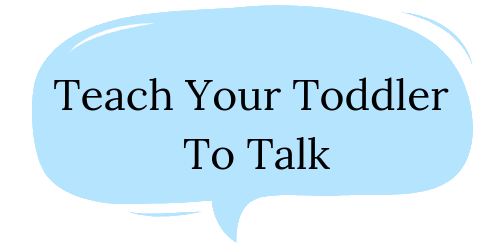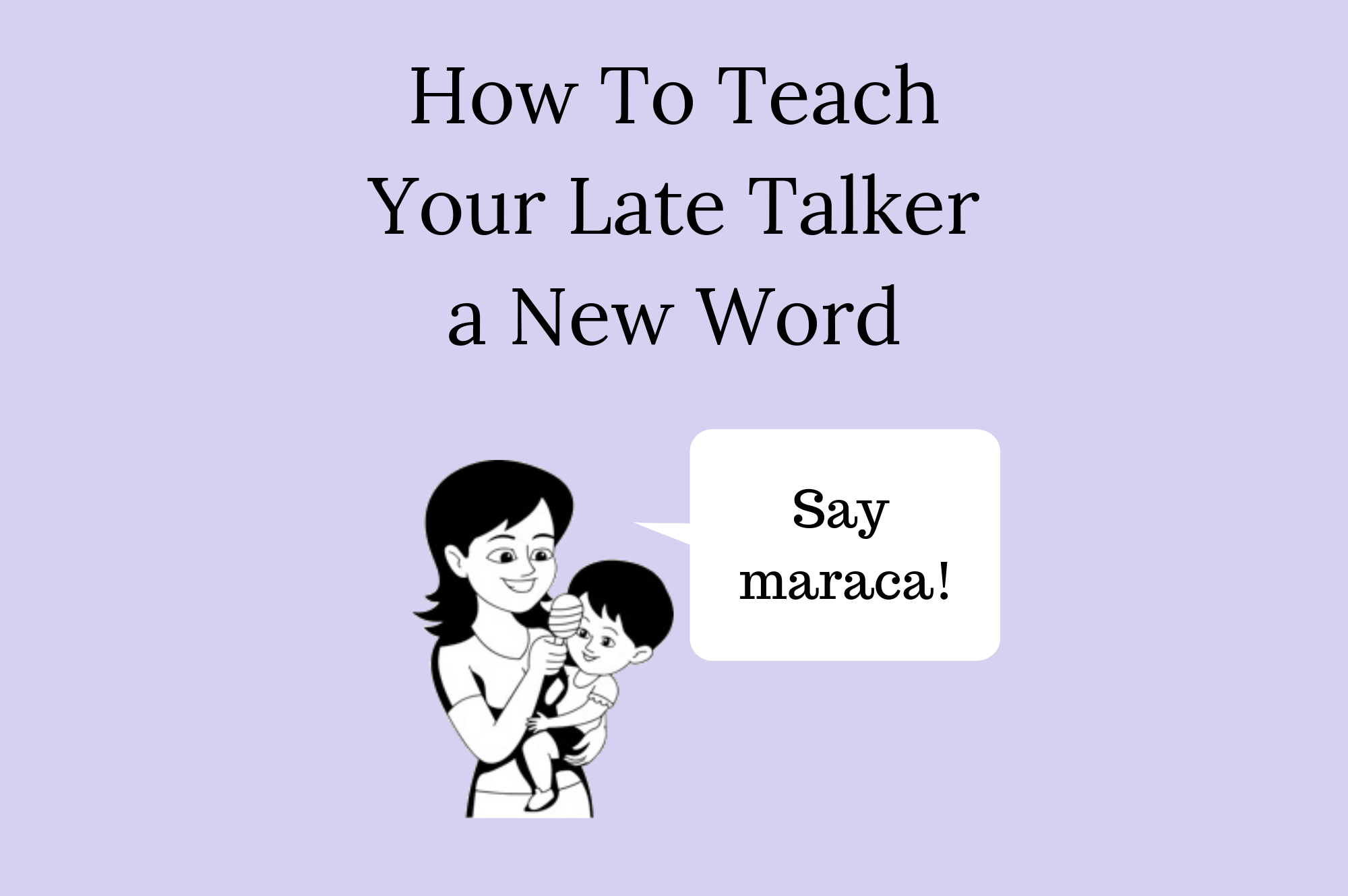If your child is late to start talking, you are likely getting frustrated. You keep trying to get your toddler to say words, but it just isn’t happening! Today, I’m sharing my 5 steps to teaching your late talker a new word:
1. DETERMINE IF THEY ARE READY TO USE WORDS
Just like your toddler needed to learn to stand up before they were able to walk, they also need to go through certain steps in development before they will be able to use words to communicate. I’ve included some of the main skills that children learn before they start talking. If they are not doing these things yet, we will have much more success working on building these foundational skills before targeting new words.
- Responds to people & the environment
- Children need to be aware of and respond to people and sounds in their environment. Do they look when you call their name? Do they respond when you say “stop”?
- Demonstrates Joint Attention
- When playing with toys, does your child often look up at you and move their gaze between you and the toy to share the moment? This is a critical skill for language development!
- Understands words and simple directions
- Does your child follow a variety of simple directions and identify familiar objects? Children need to have a good understanding of words before they can use them to communicate.
- Uses gestures
- Typically developing children start to use gestures to communicate before words. Some early gestures include raising their arms to be picked up, shaking their head, waving, and pointing.
If your child is not yet doing these foundational skills, sign up for more tips and strategies, and go here for my post on helping toddlers use gestures.
If they are doing these things, and maybe even saying some words already, yay! Let’s help them learn some new words!
2. CHOOSE A WORD TO TARGET
Let’s choose a word that we can target. We want to pick a word that is going to be useful for your child to communicate. This may include people or objects that are important to them. We also want to pick words that aren’t too hard to say. So I wouldn’t pick “strawberry”, even if it was your child’s favourite food.
Some ideas could be: “dada”, “mama”, “no”, “more”, “milk”, “up”, “ball”
3. MAKE SURE THEY UNDERSTAND THE WORD
As mentioned, kids need to understand the word before they can use it. Check if they understand “dada” by asking “where’s dada?” and see if they look. Have a few items out in front of them and say “get the ball” to see if they know the word “ball”.
If they need help understanding it, your first goal will be to help them understand the word. Say the word and point to the object whenever you see it. “There’s the ball! Ball!”. Repeat the word a lot when you are playing with or using the item.
4. TEACH THEM TO IMITATE THE WORD
In order for your child to imitate the word, you can repeat the word, and the wait. Give them motivation to repeat the word by holding back the desired item, saying the word, and waiting for them to repeat it. We want to give them the opportunity to say the word in a fun and playful way without demanding that they say it.
Example 1: Teaching “ball”
When your child wants the ball, hold it and say “ball”. Pause, giving your child the opportunity to say the word. Repeat the word once or twice, pausing after each time. If your child doesn’t say the word, go ahead and give him the ball. We want to give them the opportunity to imitate without causing frustration. If your child attempts to copy by making a sound, get excited and praise them!
Example 2: Teaching “dada”
- Dad hides behind the couch or under a blanket
- Get your child’s attention first and say “dada!”- dad pops out right away and says “boo!”
- Dad hides again, and repeats the routine
5. CUE THEM TO SAY THE WORD ON THEIR OWN
Once your child is imitating the word consistently, you can use the same idea of “waiting” in order to prompt them to say the word. In this example, show them the ball and wait. Put your lips together as if you are going to start to say the word, but don’t actually say it. If they don’t say it, then you can model the word for them. This simple trick of waiting can tempt your child to say the word on their own
Other ways to help your late talker:
- Make an appointment with a Speech-Language Pathologist in your area
- Download my free guide below
WANT MORE WAYS TO HELP YOUR TODDLER TALK?
CLICK BELOW FOR YOUR FREE GUIDE


